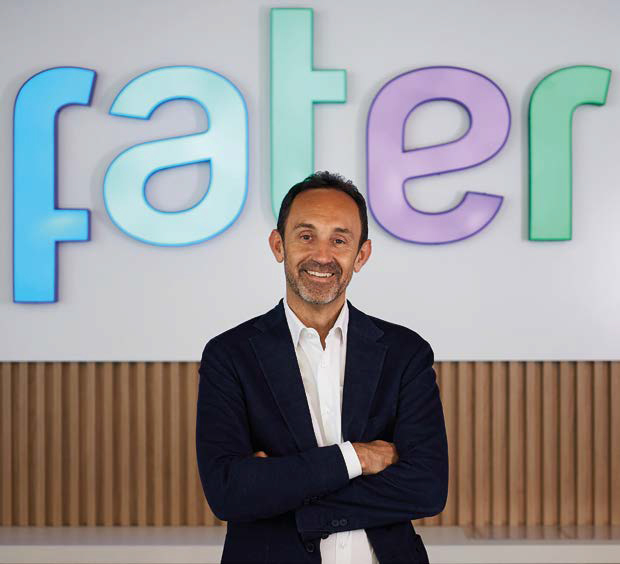It is an insert of major importance for us both because it represents the voice of those who look at Fater from the outside, and because sustainability can be achieved only if we team up and work together.
I am confident that you too will observe how the commitment that, a few years ago, drove us to place sustainability at the center of our “People First” transformation process towards a more open and impactful business model is growing every year.
I would like to review the main innovations that you will find in the document, with the hope they will engaging to read as it was for us to make.
Every Day a better society. We have made further progress in reducing the gender pay gap by implementing concrete plans to accelerate its reduction to zero, always in compliance with meritocracy criteria. In addition to this, with the collaboration of an external partner, we have started a solid process of analysis of our Brand Purpose initiatives.
This is an important first step that will help us in the future to measure more consistently the change generated by our activities in the communities in which we operate and, therefore, to set ourselves even more specific goals.
Every Day climate protection. We have reduced our overall corporate carbon footprint by 4%¹, which is even more positive because it was achieved in a new year of growth in business results. We have expanded the scope of measurement of the reduction of virgin plastic in primary packaging, also including finished products purchased from suppliers in Fabric & Home Care category.
This change represents a big step forward compared to the past, in which only in house products were considered. In order to remain consistent with our goals of decarbonization and reducing virgin plastic, we have also extended our focus to changing the materials and packaging of existing products, rather than just the raw materials of new products.
Every Day responsibility. We have made significant steps in the evolution of our ESG KPIs to make them even more representative of the implemented actions and of their effects on the environment and people. Our commitment to sustainability is also reflected in the evolution of the measurement criterion in “Sustainable by Design” area, moved to the pillar of Governance, since it represent process driving
innovation.
These outcomes are the result of the constant commitment of many women and men inside and outside Fater, who work every day for a more sustainable future and to whom I would like to express all my gratitude. These results will be even more meaningful if they are enriched by listening to your comments and suggestions that might help us ask ourselves new questions and think about how to
improve.
As we say in Fater, “Every Day Matters” to work for a more sustainable future, always putting people first.
Enjoy reading!
Antonio Fazzari,
General Manager e Chief Operating Officer di Fater
1 Reduction towards FY 2020/21 baseline









